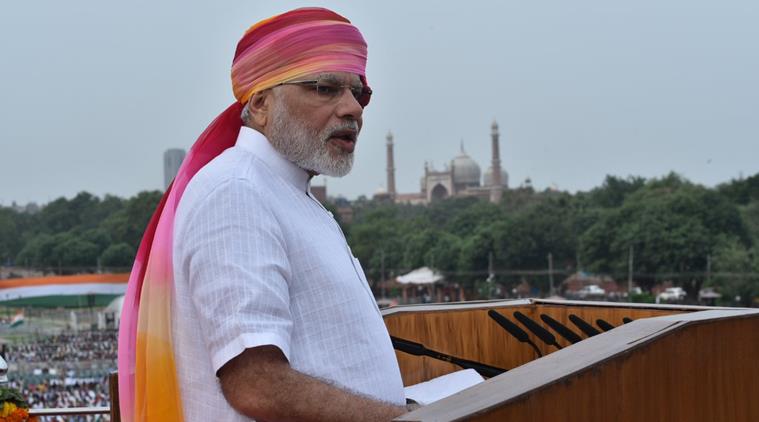
India’s newfound zeal on Balochistan and Gilgit-Baltistan is gambit, delusion and truth, all rolled into one. The gambit part is this. Pakistan has been aiding and abetting terrorism and other forms of militancy directed against India. Both India and Pakistan are nuclear powers. That obvious fact has cut down India’s options for retaliation. Serious action risks potentially uncontrollable escalation. Since Pakistan knows this, it can asymmetrically inflict harm on India without fearing significant consequences. India’s response has been to absorb the costs of Pakistan’s pricks. Whether India’s position is seen as prudence or weakness depends on your historical assumption and psychological predilections. But it has certainly not moved Pakistan’s position in any constructive direction. Many in India find the status quo intolerable. They are looking for a way to break it. The political pressure to be seen to be doing things to Pakistan is also great.
What are our options? One is to occupy the high moral ground, gather diplomatic capital and hope it moves Pakistan. This position has probably helped enhance India’s global standing, but it does little to solve our regional problems. One way of breaking the status quo is to think out of the box. Put all kinds of things back on the table, from the legality of Gilgit-Baltistan’s status, to Balochistan. The point is not so much whether you can achieve anything on these individual items. The point is to signal, “Don’t take our position for granted.” The point is to keep everyone guessing, including getting others to contemplate the possibility that you might do crazy things. That, rather than occupying the stoic moral high ground, might actually get Pakistan and the international community to take us seriously. I suspect something like this thought is beginning to inflect Indian strategic circles. If you cannot see too much coherence in what we are doing, that is exactly the point. Don’t presume anything about what we might do next.
This gambit can sometimes work in international relations; it’s risky, but not silly. But there is naivety in execution that borders on delusion. For one thing, strategic shifts, if serious, are subtly signalled, not grandly announced. Subtle actions should speak louder than words. But raising the domestic public political temperature also cuts down your room for manoeuvre. But even at a pragmatic level, the Balochistan card is overrated. None of the conditions of successfully using it exist. India’s ability to make Balochistan an effective issue will depend on Great Power cooperation. Not a single power is likely to be responsive. China wants to delegitimise sub-nationalisms even more strongly than India; it will not abandon Pakistan as an ally; it is hugely entangled in security and development projects in Balochistan. The Russians are hardly going to be receptive. The United States has given no evidence of human rights concerns in Pakistan ever holding it back from any engagement with Pakistan. Even the Iranians fear a Greater Baloch movement.
Will outside support actually help Balochistan? There is good reason to suppose that the more a political movement is likely to be associated with an external power, the more legitimacy there is for its brutal repression. In an interesting Chicago University dissertation, Ahsan Butt has shown that even in the 1970s, Pakistan’s response to Balochistan was less severe than in the case of East Bengal, because the former movement was not associated with an outside power. Our own shifting of virtually the entire onus of the Kashmir problem to Pakistan performs the same ideological function for us; alignment of a movement with an outside power is preparatory ground for more repression. Why do we assume that the Pakistanis will not make life even worse for Balochistan, and delegitimise even legitimate grievance? The victim in escalation in violence will not be the Pakistani state, it will be the ordinary residents of Balochistan.
Many Indian analysts ask this question: We need to inflict costs on Pakistan for its support for cross-border terrorism and militancy in India, but what will have to be the extent of the cost for it to be actually perceived as a cost by the Pakistani establishment?
Given the nature of the Pakistani military, it is likely that the scale of costs will have to be so immeasurably high that it is more likely to make the region deeply volatile. India-Pakistan is not an international relations problem. It is a psychological one, where the success of the other can so easily be turned on its head to foment more resentment. The challenge is that the character of the Pakistani state needs to change. But it is difficult to see how escalating territorial disputes and insurgencies actually helps that process.
We need to remember a subtle issue. We try and delegitimise our own sub-national movements in the following gambit: The Indian constitutional project will guarantee your human rights, provide you with space where your identity can flourish. We have often breached this promise. But this is our moral gambit: Protect rights but do not condone state subverting sub-nationalism. Ideally, this is exactly the position Pakistan needs to take towards all its minorities. Neither of us can solve our problems by fomenting more territory-based nationalisms, which, these days, are often in their form and character as much, if not more, inimical to human rights and pluralism than the state from which they want secede. The assumption that supporting secessionist nationalism and promoting human rights is the same thing is deeply questionable.
The truth in India’s new position is this: We have acknowledged that India and Pakistan are deeply hyphenated. The flip side of saying we will go after each other, we will reopen the territorial settlements on the ground, is also saying that we cannot solve our problems without the full cooperation of the other. South Asia needs a common culture of the pacification of violence and commitment to human rights, not another round of mega- and sub-nationalisms, whose only dénouement will be more violence and ethnic cleansing. Both countries now externalise their problems onto each other.
Pakistan’s constitutional settlement has been deeply dysfunctional — for the militarisation it has produced, and for its minorities. India’s constitutional settlement, for all its other grandeur, has not yet passed the Kashmir test. Neither of these problems is going to be resolved by targeting each other. Perhaps the new gambit may allow a franker conversation. But it is more likely that it will divert us from plain moral truths. We will confuse prudence with weakness, tactics with strategy, loud words with action.
[Source:The Indian Express]



